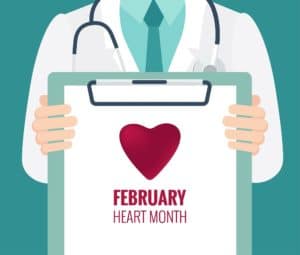Our bodies are made up of about 60% water, so it’s fair to say that we absolutely need to drink plenty of water each and every day to help our bodies perform at their optimal level. In fact, drinking water and staying hydrated helps organs function properly, aids in digestion, keeps joints well lubricated, and can even help fight off illness. But your dentist in Reno wants you to know there are also oral benefits to staying hydrated.
Fights Off Damaging Acids
Everyone naturally has mouth bacteria, but not everyone knows that some of these bacteria are some of the most harmful things for our teeth. As we eat throughout the day, mouth bacteria are getting a feast of their own through the food particles left behind in our mouths. The longer the food is left lingering around, the more the bacteria will consume. As a byproduct of this feeding frenzy, bacteria will give off an acid. This acid, if not removed, will attack the protective layer of teeth and cause decay and cavities. However, if we choose to drink water as we eat, we can help lower this risk. Water helps wash away the source of the bacteria’s meal and without these leftovers to feed on, no acid is produced by the bacteria. Additionally, drinking water immediately after our meals will neutralize any acids that may already be at work attacking the enamel.
Keeps Mouths Moist
Drinking water throughout the day will also help keep our mouths moist, which is key to maintaining good oral health. If our mouths are too dry it means that not enough saliva is being produced. Without saliva, bacteria are able to flourish, feeding on anything we eat and releasing acids over and over. This increases the risk of developing decay and cavities which may require dental treatment from your dentist in Reno. But that’s not all, dry mouth can also feel uncomfortable and cause chronic bad breath. Keep in mind, dry mouth can be caused by dehydration, but it can also be a result of certain medications, mouth breathing, or smoking. While not all cases of dry mouth are easily solved by drinking plenty of water, it’s not a bad habit to pick up and it certainly can’t hurt.
Builds Strong Teeth
Drinking water, specifically fluoridated water, can further protect teeth through a process called remineralization. Our teeth’s protective layer of enamel gets worn down over time, whether as a result of too much acid, tooth grinding, or simply time. But drinking water containing fluoride can help remineralize, or rebuild, the lost enamel for better protection. Fluoride is a naturally occurring mineral that’s organically found in some foods. Over time, researchers have found that higher levels of fluoride resulted in lower levels of tooth decay. That’s why fluoride has been added to many public water systems. Patients can also get fluoride from their toothpaste, through foods or drinks that have been fortified with fluoride, or from their dentist in Reno.
Water is such a simple thing, but it’s one that can make a big difference in both overall and oral health. Make sure each member of your family drinks at least eight 8-ounce glasses of water each and every day.



 The difference between a healthy smile and cavity trouble may come down to the type of toothpaste you use. At your local grocery store or pharmacy, you likely have a wide variety of toothpaste brands available, with different products boasting different properties. Is your choice delivering on its promises? Should you switch to something more potent? If you want to make sure your toothpaste is doing its job, look for the ADA Seal Of Acceptance. This means that the product you use has been evaluated, and confirmed as effective. Any toothpaste containing this seal of approval will contain fluoride. Fluoride is a mineral that will help your enamel stay strong and healthy, so you are less likely to
The difference between a healthy smile and cavity trouble may come down to the type of toothpaste you use. At your local grocery store or pharmacy, you likely have a wide variety of toothpaste brands available, with different products boasting different properties. Is your choice delivering on its promises? Should you switch to something more potent? If you want to make sure your toothpaste is doing its job, look for the ADA Seal Of Acceptance. This means that the product you use has been evaluated, and confirmed as effective. Any toothpaste containing this seal of approval will contain fluoride. Fluoride is a mineral that will help your enamel stay strong and healthy, so you are less likely to  Our teeth enjoy considerable protection thanks to their enamel. Enamel keeps them safe when you bite and chew, and the substance is able to resist damage caused by oral bacteria, up to a point. Unfortunately, because enamel does not consist of living cells, breakage can be permanent. However, physical trauma is not the only issue you should worry about when it comes to keeping your enamel safe. Wear and tear over time can cause layers of your enamel to erode. This can make it harder for you to
Our teeth enjoy considerable protection thanks to their enamel. Enamel keeps them safe when you bite and chew, and the substance is able to resist damage caused by oral bacteria, up to a point. Unfortunately, because enamel does not consist of living cells, breakage can be permanent. However, physical trauma is not the only issue you should worry about when it comes to keeping your enamel safe. Wear and tear over time can cause layers of your enamel to erode. This can make it harder for you to 




